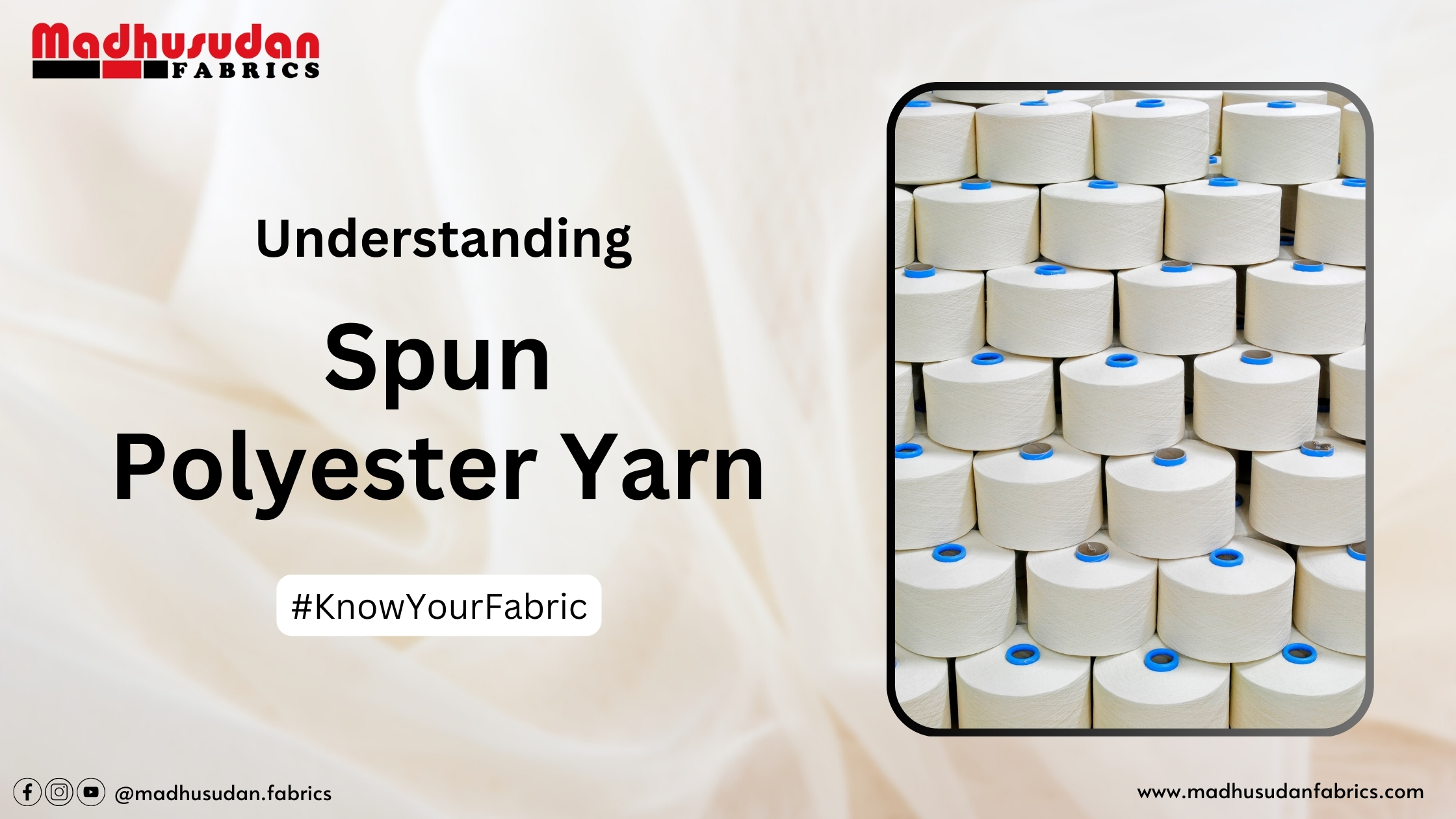Spun polyester yarn is a versatile and popular type of yarn used in knitted and woven fabrics. It offers a good balance of desirable qualities, making it a go-to choice for a variety of clothing and textile applications.
Here’s a breakdown of what spun polyester yarn is and its key characteristics:
Production Process:
- Unlike filament yarns, which are continuous strands, spun polyester yarn is made from short polyester staple fibres.
- These short fibers, typically ranging from 1 to 3 inches long, are spun together using a spinning process. This process involves aligning and twisting the fibers to create a continuous, strong yarn.
Properties:
- Durability: Polyester is known for its excellent durability and resistance to wear and tear. Spun polyester yarn inherits this strength, making it suitable for garments that need to withstand frequent use and washing.
- Wrinkle Resistance: Another key characteristic of polyester is its wrinkle resistance. Spun polyester fabrics tend to wrinkle less than natural fibers like cotton, requiring less ironing.
- Moisture-wicking: While not as breathable as natural fibers, some spun polyester yarns can be treated to wick away moisture from the body, making them suitable for activewear.
- Versatility: Spun polyester yarn can be blended with other fibers like cotton, wool, or nylon to achieve different textures, weights, and functionalities.
- Cost-effective: Compared to some other synthetic yarns, spun polyester can be a more affordable option.
Applications:
Spun polyester yarn is widely used in the textile industry for a variety of applications, including:
- Activewear: Due to its moisture-wicking properties and durability, spun polyester is commonly used in sportswear and activewear.
- Casual Clothing: Blended with cotton or other fibers, spun polyester offers a comfortable and wrinkle-resistant option for everyday wear like t-shirts, polos, and pants.
- Home Textiles: Spun polyester can be found in bed sheets, blankets, and throws due to its durability and ease of care.
- Workwear: Work uniforms often utilize spun polyester for its wrinkle resistance and durability.
Advantages:
- Durable and long-lasting
- Resists wrinkles
- Can be moisture-wicking
- Versatile and blendable
- Cost-effective
Disadvantages:
- Less breathable than natural fibers
- Can feel less soft compared to some natural fibers
- May be susceptible to pilling (formation of small balls of fiber on the surface) depending on the blend
In Conclusion:
Spun polyester yarn is a valuable component of the fabric industry. Its durability, wrinkle resistance, versatility, and affordability make it a popular choice for a wide range of clothing, knitting, and textile applications. However, it’s important to consider its breathability and potential for pilling when choosing fabrics for specific needs.

